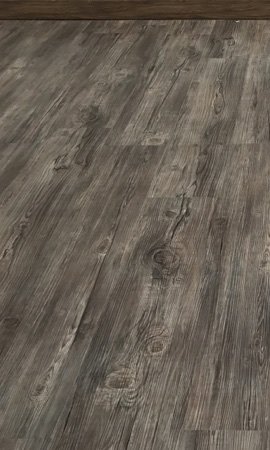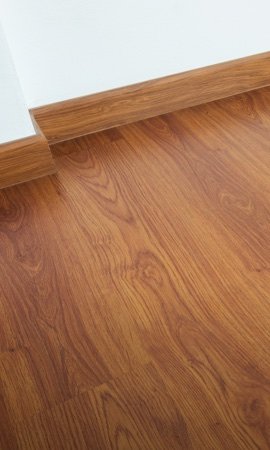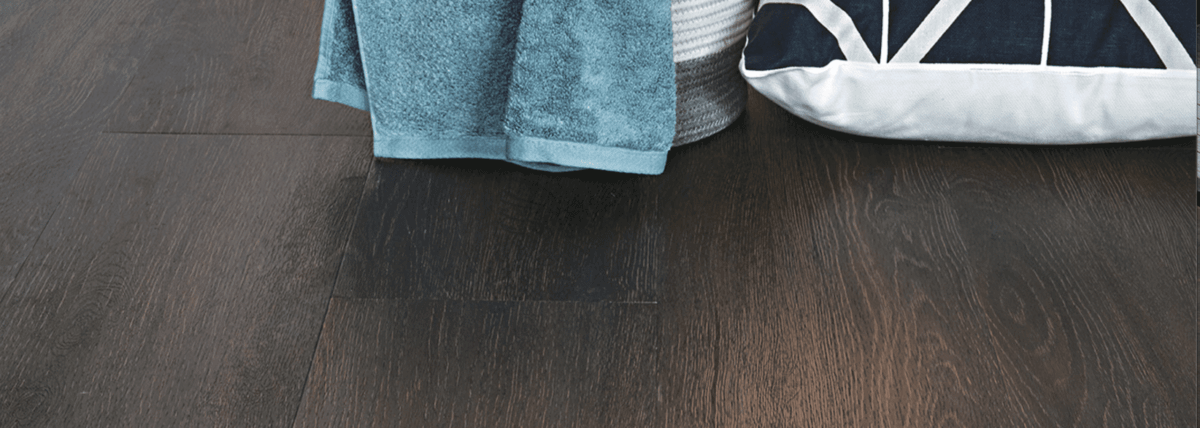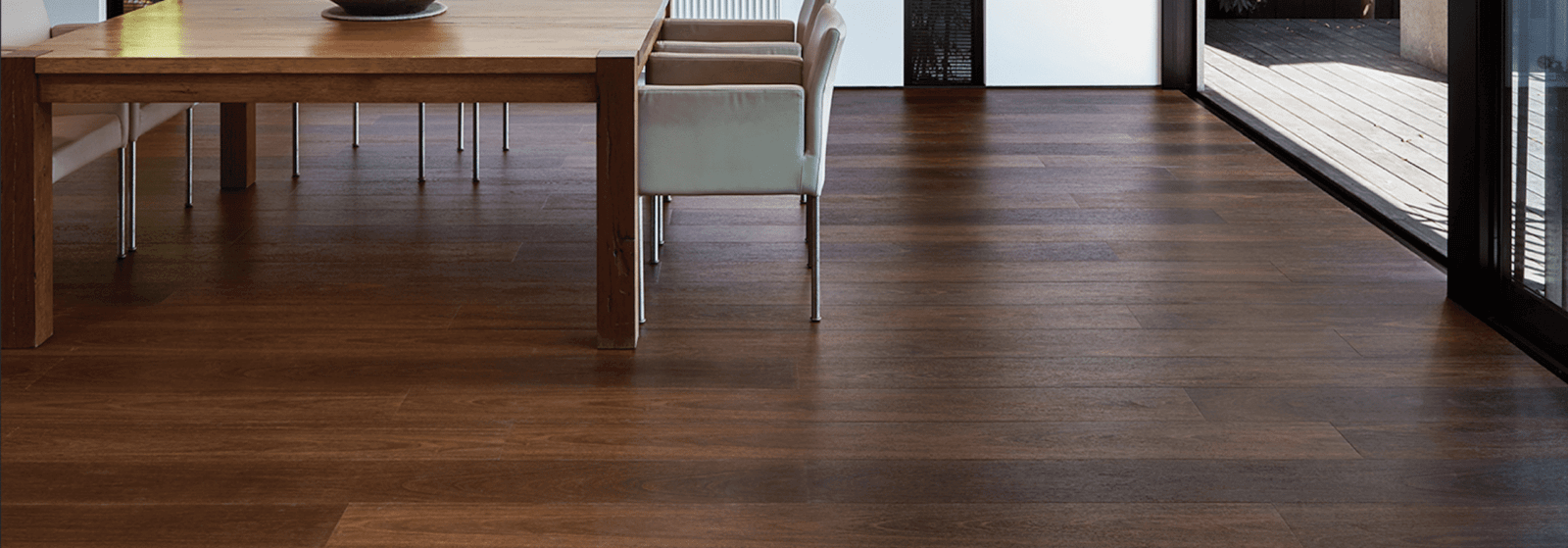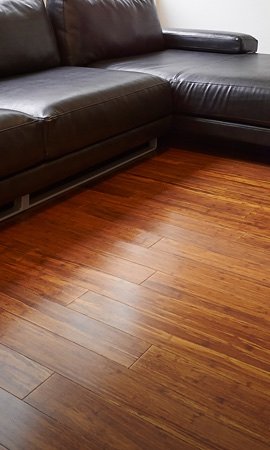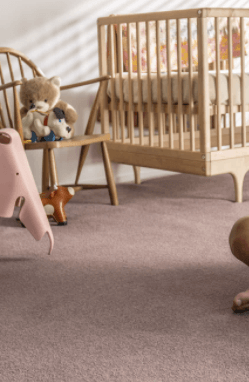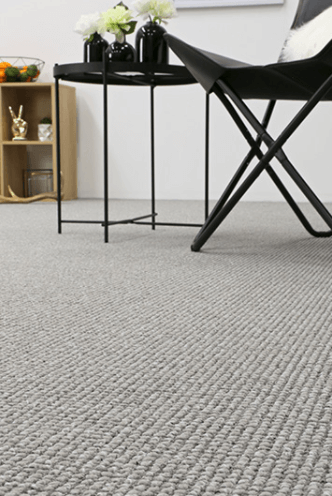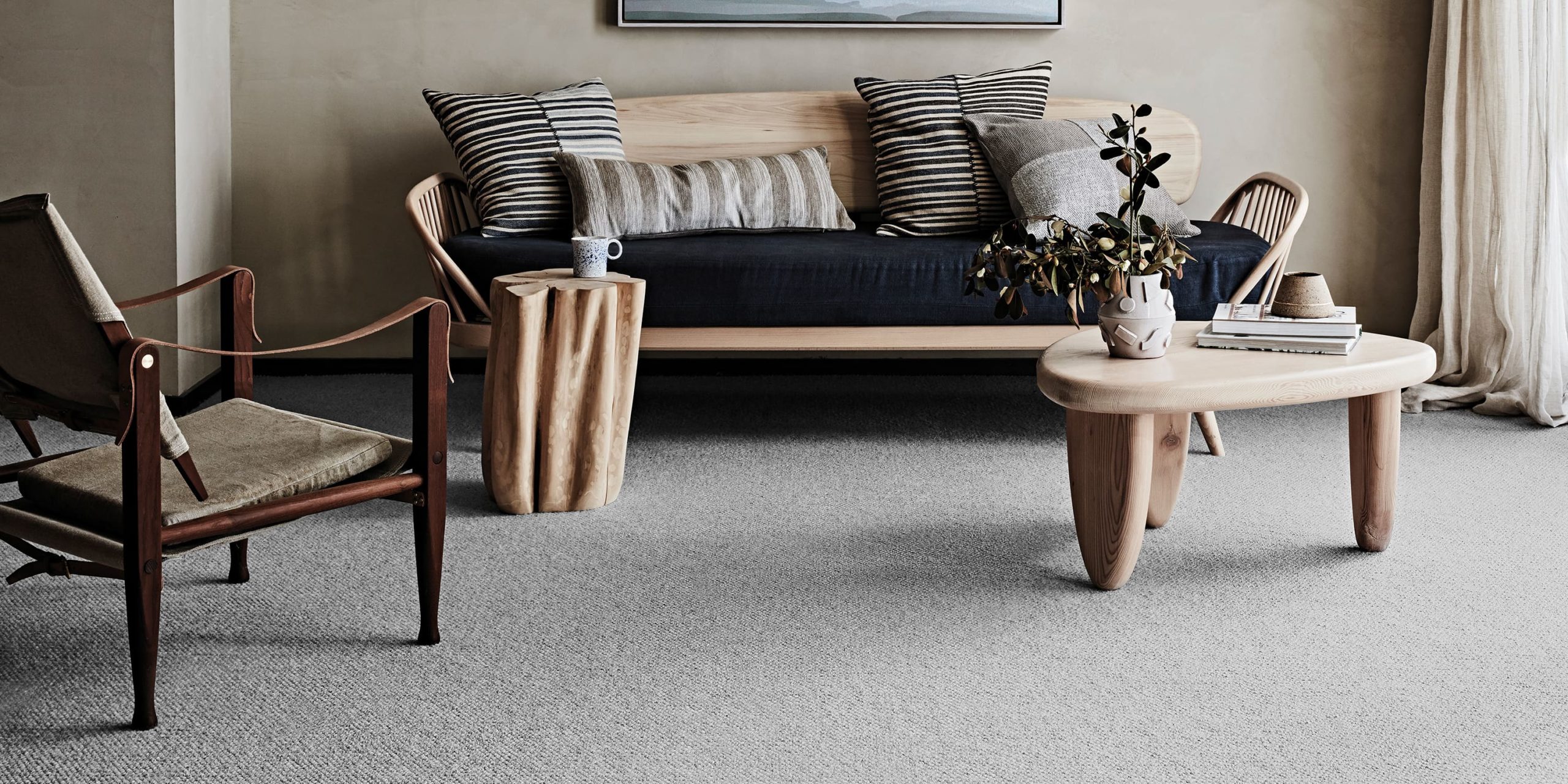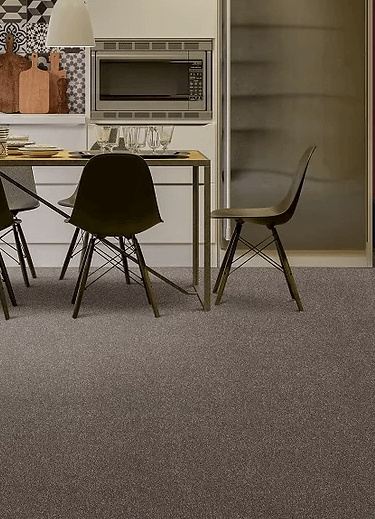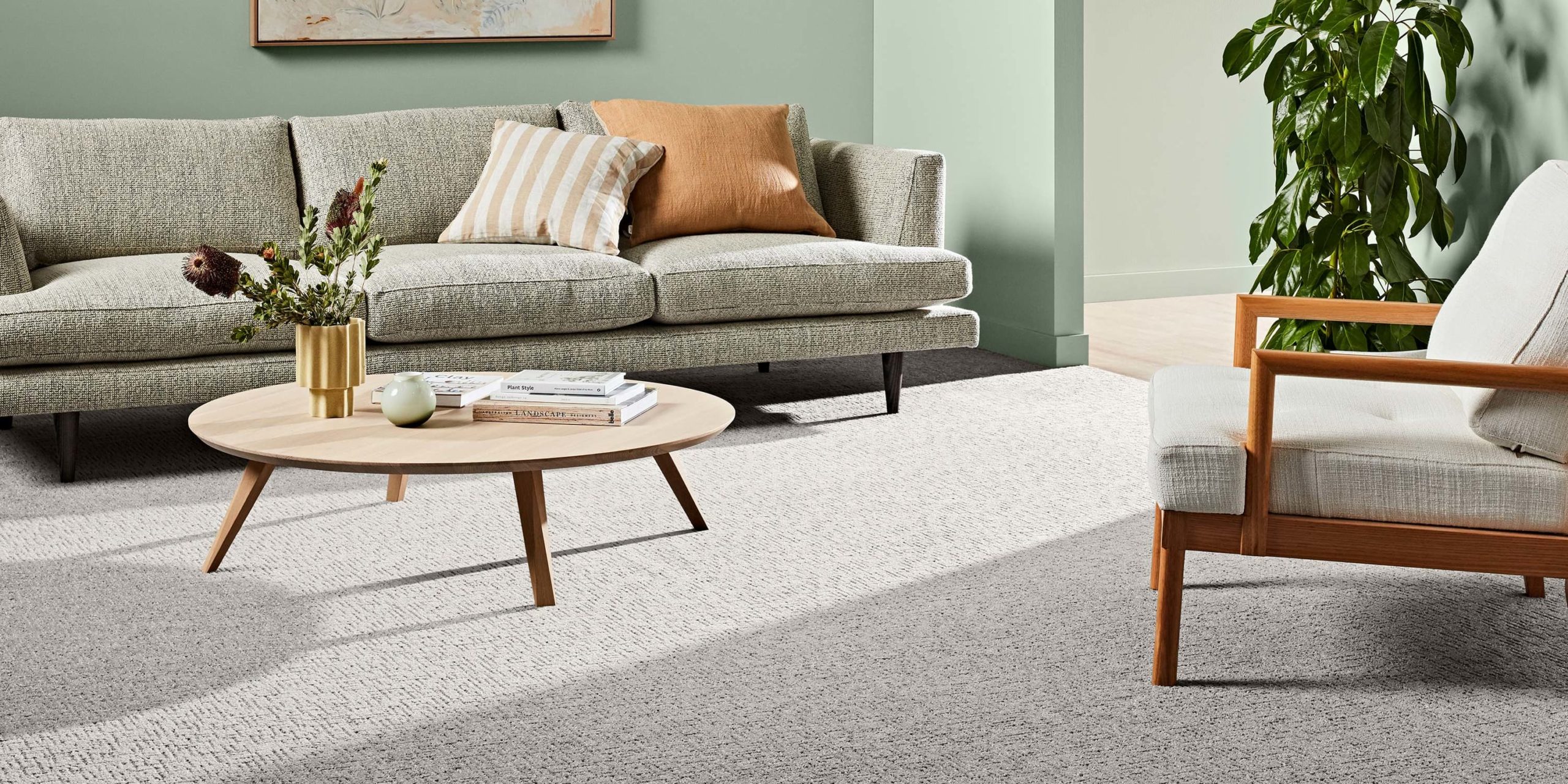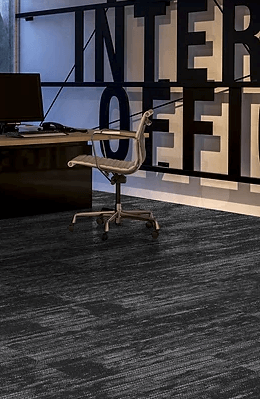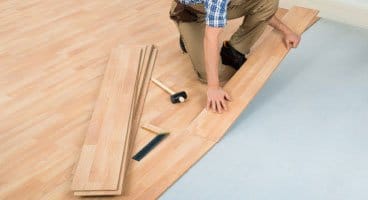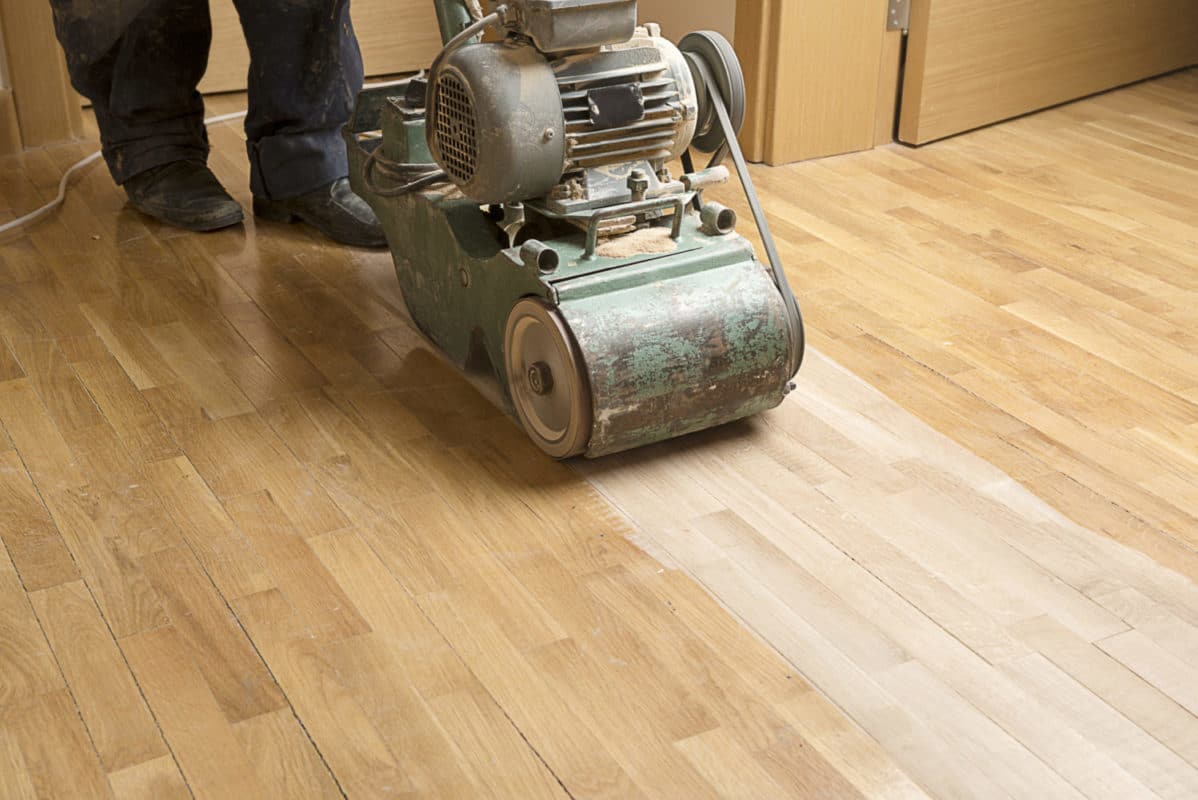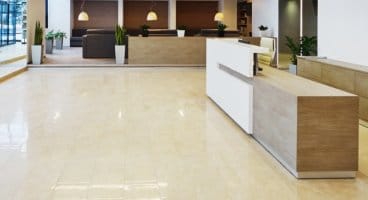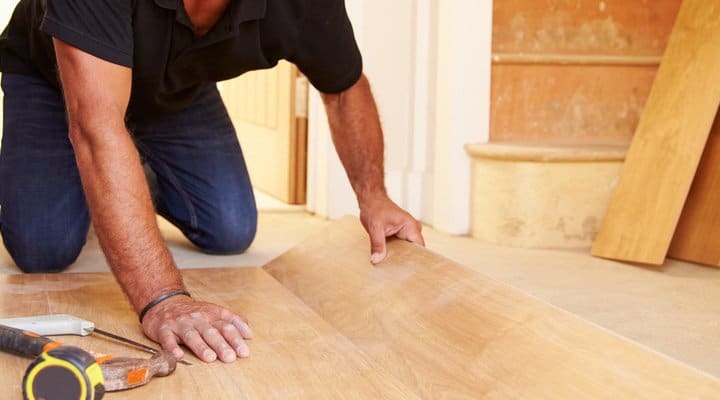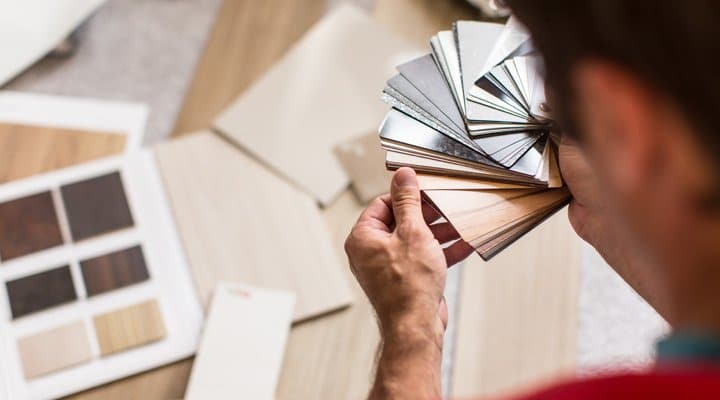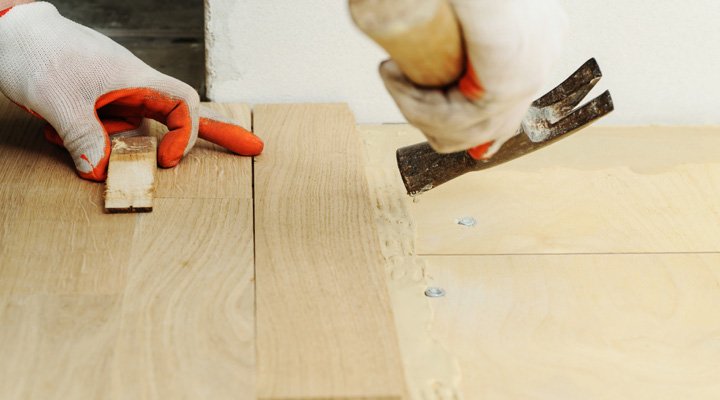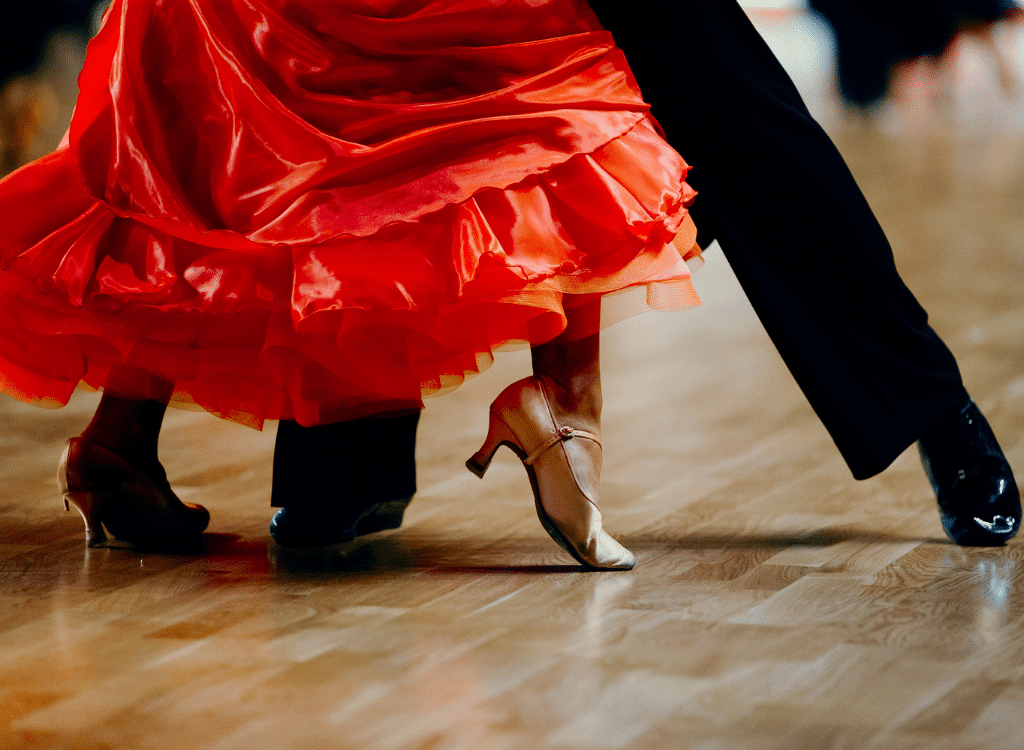

14 Aug Understanding Your Commercial Flooring Options
You have decided that it is time to renovate your office or restaurant floor, but where on earth do we even begin when it comes to finding appropriate commercial flooring? Choosing a floor is not a simple task, and can even result in problematic legal implications if specific requirements are not met.
This article will explain the updated considerations of various commercial settings, and compare the benefits and drawbacks between different options. All information has been updated for NSW in 2021.
Considerations of Commercial Flooring
The first step in finding the right flooring isn’t about the outright ‘most durable’ or ‘most waterproof’, although they are very important attributes. The right flooring depends on where you intend to install them, just like how a busy restaurant will require different specifications to an office space.
- Durability – Most commercial areas experience much more foot traffic compared to domestic spaces. You’ll definitely want something which can withstand roller bags, heavy boots, chair dragging and even stilettos.
- Water Resistance – Moisture and water is virtually inevitable in any commercial setting. Can your flooring hold their own against, especially when clients bring their muddy shoes all over the floor on rainy days? Even better if you install waterproof flooring.
- Cleaning & Maintenance – This is often a big consideration in any situation, even more so for commercial settings. Any store, office or dining area must be easy to clean and maintain. After all, the saying goes that time and effort is money!
- Safety & Slip Resistance – The last thing you want is someone slipping over in your store front or lobby. Business store fronts and other industry areas must abide by both Occupational Health and Safety legislations and National Construction Code. You can ensure this by checking the slip rating of different floor coverings.
- Fire Safety & Testing – Fire testing is especially important in commercial settings, and tenfold as much when there is cooking involved. This includes the critical heat flux and smoke value.
Popular Commercial Flooring Choices
No.1 – Vinyl Flooring
What is vinyl flooring? Think plastic, but not the cheap kind of plastic you find in bottles and bags. Vinyl flooring is a type of floor made from hard wearing polyvinyl chloride (PVC) which is specifically built to withstand the rough and tumble of commercial areas. The most attractive features of vinyl flooring include their high resistance to dents and impacts, and waterproof nature.
No. 2 – Laminate Flooring
Laminate flooring is not real timber, instead they are made of wood-pulp fused with high temperatures and pressure into high density fibreboards (HDF). Laminate flooring is the most abrasion resistant flooring option in the market. Most laminate options are water resistant, however more innovative ranges like the AquaFloor Laminate are even waterproof!
No. 3 – Porcelain Tiles
Porcelain tiles are great for restaurants, cafes and other commercial areas for a plethora of reasons. They are extremely hard wearing compared to wood or plastic options and also fully waterproof. Some tiles are structured with slip resistance which is a bonus safety feature, however the downside is the unforgiving hardness in the event of a fall.
Best Commercial Flooring for Specific Areas
Flooring for Offices and Co-working Spaces
Office and Co-working spaces experience less wear and tear than other areas since they are generally tame areas where people want to be productive. You can get away with laminate or carpeting without any major catastrophes… unless significant moisture gets in the way. Commercial vinyl flooring is slightly less durable than laminate but offers waterproofing.
The office interior decor can have a significant impact on the options, which laminate and vinyl planks can accommodate since they come in a plethora of colours and designs from natural to synthetic.
FloorVenue recommends: Vinyl Planks or Laminate Flooring
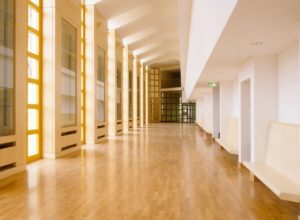

Flooring for Restaurants and Cafes
Hospitality sectors like restaurants and cafes experience even more traffic than offices and co-working spaces. Waterproofing is an absolute essential feature as you never know when someone will spill a glass of wine or drop a bowl of soup. The last thing you’ll want is having to repair water damaged flooring. Likewise, you’ll want a floor covering which is easy to clean so steer clear from carpet.
The design of the cafe will have a large impact on the material and colour of the cafe or restaurants flooring. A more natural style will warrant timber or bamboo even though they may be less water resistant, whereas minimalist designs will fit perfectly with white porcelain or luxury vinyl planks.
FloorVenue recommends: Porcelain Tiles, Vinyl Planks or AquaFloor Laminate
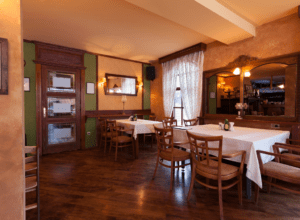

Flooring for Hospitals and Laboratories
Hospitals and laboratories both have potentially hazardous chemicals which can be a danger to the ecosystem and populous if leaked. This makes it a legal requirement for the floors to be fully sealed. As such, the majority of flooring options are already out of the question. Vinyl sheets are the most suitable since they offer sealing properties. Furthermore, vinyl sheets can come with anti-slip properties.
FloorVenue recommends: Porcelain Tiles or Vinyl Sheets
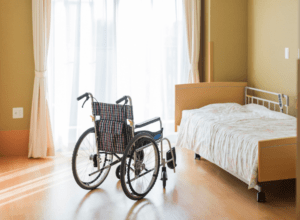

Flooring for Senior Living
Safety should be the first thing which comes to mind for senior living. It is advisable and required to install a floor covering which is less slippery and softer in the event when someone falls. There are specific anti-slip ratings to be on the lookout for. Another requirement of senior living is very high acoustic underlayment for minimal noise transmission.
If you are looking for more information, we have an entire guide to choosing the right flooring for aged care centres.
FloorVenue recommends: Vinyl Planks and Hybrid Floors


Flooring for Gymnasiums
Gymnasiums are a special case where heavy weights are often dropped on the floor. You’ll need something which can withstand heavy impacts and dents, as well as sweat from the many fitness fans. Most gyms use rubber underlay or some form of vinyl floors as they can absorb and cushion any weights. Furthermore, they are naturally sound absorbing which is a legal requirement of gyms.
FloorVenue recommends: Rubber Tiles/Rolls or Thick Vinyl Planks
Conclusion – Vinyl Flooring is the best Commercial Flooring
You may have noticed that vinyl floors are recommended in virtually any commercial setting. This is correct since they are specifically designed to accomodate for the many stringent requirements we see in commercial buildings. However, don’t take it as a rigid rule as every situation differs. It is important to always make an informed decision based on the flooring qualities, economic cost factors and legal requirements when choosing the best commercial flooring.
Commercial Vinyl Sheets vs Luxury Vinyl Planks
Luxury Vinyl Planks (LVP) – Longboards made of PVC which are usually designed to look like real timber through printing technology. These are perfect as both commercial flooring solutions and in residential applications.
Vinyl Sheet – Also made of PVC, however they come in rolled up sheets which are unfurled from a large roll. Like LVP, vinyl sheets are also 100% waterproof and have wood (or other) features printed on its surface. The difference is that vinyl sheets are fully sealed meaning that water and chemicals cannot pass through the floor. This makes it more suitable as a commercial flooring product than residential.
Pros and Cons of Vinyl Flooring
Benefits of Vinyl Flooring
- Waterproof – All vinyl floors are 100% waterproof which makes them less worrisome. Waterproofing is a key feature for any commercial area.
- Impact Resistant – Vinyl floors absorb dents and impacts spectacularly well as they are slightly soft and flexible.
- Safe Flooring – Vinyl flooring is slightly soft and springy, making them less dangerous especially for aged care centres and hospitals.
- Fully Sealable – Vinyl sheets are completely sealed which is a very useful feature in specific commercial areas including hospitals, labs and other areas which may have hazardous chemicals present.
Drawbacks of Vinyl Flooring
- Scratch Prone – The trade off for being more impact resistant is less scratch resistance. Since vinyl flooring is soft, they are easier to damage from sharp objects and lacerations.
- VOC Emissions – Since vinyl coverings are made of plastic, they may release respiratory irritants known as volatile organic compounds (VOCs). Although VOC emissions are not a health concern, this may be a ruling out factor in some facilities.
- Glue-Down Installation – Vinyl sheets are not floating floors and have a more difficult and expensive installation process known as ‘glue-down’.
